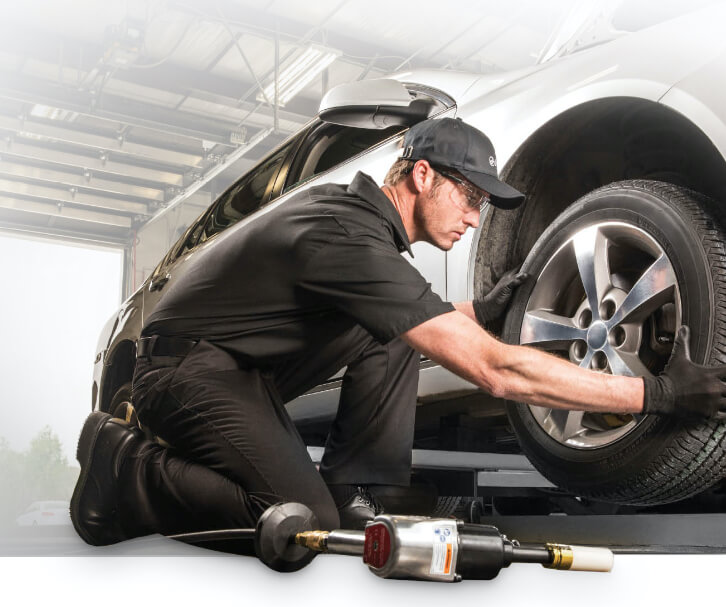The Web Link Between Tire Service and Gas Efficiency
Efficiency in fuel consumption is a critical worry for car owners seeking to optimize their driving experience. Amongst the numerous aspects that affect fuel effectiveness, tire service stands out as a vital aspect that frequently goes overlooked. The elaborate relationship between tire upkeep and gas economic climate is a testament to the detailed operations of a lorry. By recognizing how tire treatment straight affects the efficiency of your car, you can unlock a realm of opportunities that not only enhance performance however also add to cost financial savings in the long run.
Significance of Appropriate Tire Inflation
Appropriate tire rising cost of living is an essential factor in maximizing gas performance and making sure ideal automobile efficiency. When tires are underinflated, it develops a lot more rolling resistance, creating the engine to function more difficult and burn even more gas to keep the same speed. On the various other hand, overinflated tires can result in a harsher adventure, uneven tire wear, and decreased traction. To discover the suggested tire pressure for your car, refer to the owner's handbook or the sticker label situated on the motorist's side door jamb.
Maintaining the right tire pressure not only boosts gas effectiveness yet also improves driving safety and security. Consistently checking and changing tire pressure, particularly in the past lengthy journeys, is a basic yet effective way to maximize your car's fuel economic situation and make certain a smooth driving experience.
Effect of Tire Footstep Depth
Preserving the advised tire stress is vital for optimal lorry performance and fuel effectiveness; in a similar way, the tread deepness of your tires plays an important function in making sure safety and traction on the road. Tire walk deepness straight impacts the ability of your tires to grasp the road surface, especially in wet or unsafe problems. Frequently evaluating your tire step depth and changing tires when required is a straightforward yet reliable means to promote both safety and fuel effectiveness on the road.
Function of Wheel Positioning in Performance
Making certain exact wheel positioning is important for enhancing vehicle performance and optimizing gas economic situation. Correct wheel alignment includes adjusting the angles of the wheels to supplier requirements, making certain that they are identical to each various other and perpendicular to the ground. When wheels are misaligned, it can result in uneven tire wear, raised moving resistance, and decreased fuel effectiveness.

In addition, exact wheel alignment can likewise enhance managing and stability, reducing the amount of energy required to navigate the lorry (morris tire service). By lessening unneeded rubbing and drag, proper wheel positioning plays an essential duty in boosting overall lorry performance and gas economic climate. Normal wheel placement checks and modifications are necessary for maintaining optimum performance and making the most of fuel savings
Connection In Between Tire Upkeep and MPG
A crucial facet of enhancing gas performance in lorries is the maintenance of tires and their straight influence on miles per gallon (MPG) Correct tire maintenance plays a crucial role in making the most of fuel economy. One crucial factor influencing MPG is tire stress. Underinflated tires raise rolling resistance, triggering the engine to work tougher and melt even more fuel. On the various other hand, overinflated tires lower the contact patch with the Check Out Your URL roadway, bring about uneven wear and lowered gas performance. Routinely checking and preserving the correct tire stress can substantially enhance MPG.
Additionally, tire walk deepness additionally influences fuel performance. Damaged treads lower traction, particularly in wet problems, compeling the engine to apply more power to keep rate. This increased resistance results in higher fuel intake. By guaranteeing tires have adequate tread deepness, vehicle drivers can enhance both safety and security and gas economic situation.
Essentially, appropriate tire maintenance, including surveillance tire stress and step depth, is directly connected to accomplishing optimal MPG. By incorporating routine tire examinations and maintenance right into a car care routine, drivers can not just prolong tire life but also boost fuel effectiveness, ultimately conserving money and lowering ecological influence.

Tips for Fuel-Efficient Tire Care
Offered the critical partnership between tire maintenance and fuel effectiveness, carrying out efficient approaches for optimizing tire care is vital to enhancing total automobile performance. Turning tires at suggested intervals advertises even walk wear, enhancing fuel effectiveness by making certain all tires contribute equally to automobile performance. By integrating these fuel-efficient tire treatment suggestions right into a regular upkeep routine, motorists can optimize fuel effectiveness, lower operating costs, and prolong the life of their tires.
Final Thought
By on a regular basis keeping tires and adhering to fuel-efficient tire care ideas, vehicle drivers can optimize their vehicle's performance and decrease fuel intake. It is important to focus on tire upkeep to check this not only save money on gas prices yet also to promote site here total vehicle performance.